If we were to ask you “which cities you think are the most influential cities in history” which would you pick? More than likely we’d probably come to roughly the same conclusion seeing as these cities would influence all of us (or at least most of us). Influential cities such as Athens, Jerusalem, Rome, New York, Paris, and London, have always been a magnet for art and culture, wealth, and large populations. But to rank history’s most influential cities isn’t an easy task. In order to calculate a city’s global influence throughout history, you have to take into account a range of factors, which is why there are many cities listed below that have had and continue to have a unique impact on the world. As the great tragedian Euripides said, “The first requisite to happiness is that a man be born in a famous city,” OK maybe is not the first requirement for happiness…maybe is not a requirement at all, but it sure is cool to say you are from Rome, New York, Alexandria or any other city on this list. So if you’re ready to learn about some of the most influential cities humanity has ever seen, we present you with 25 Most Influential Cities In History That Have Shaped Our Current World.

If you liked learning about the most influential cities in history, maybe you’d like learning about the most powerful cities in the world.
Tokyo
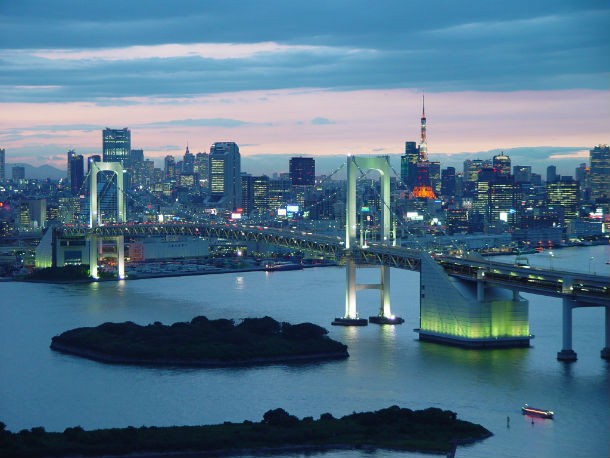 Source: Wikipedia, Image: Wikipedia
Source: Wikipedia, Image: Wikipedia Formerly known as Edo, Tokyo has been Japan’s most important city for nearly five hundred years. What’s even more impressive is that its incredible rise to an elite global metropolis was driven by its remarkable recovery from the ruins and ashes of World War II. Japanese companies and their famously hard-working staff were responsible for an “economic miracle” that by the end of the 1980s had turned Japan into one of the richest nations and Tokyo into the high-tech capital of the world.
Timbuktu
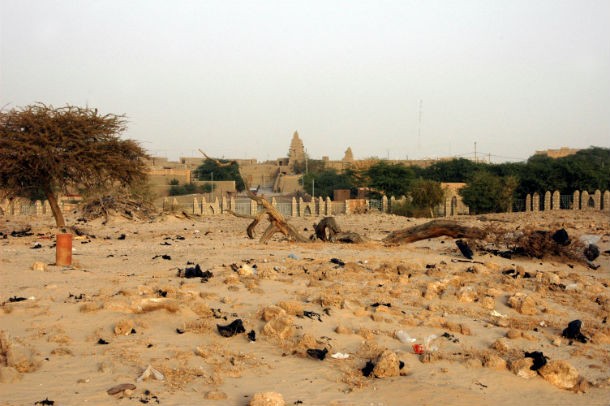 Source: Wikipedia, Image: commons.wikimedia.org
Source: Wikipedia, Image: commons.wikimedia.org Timbuktu, city of gold and an ancient center of learning, is unfortunately slowly turning to dust. The Sahara desert is stifling life, but residents know the blame lies not only with natural forces but because of human neglect, war, and greed. However, the city’s glorious past makes it one of the most important and influential ever in history.
Tenochtitlán
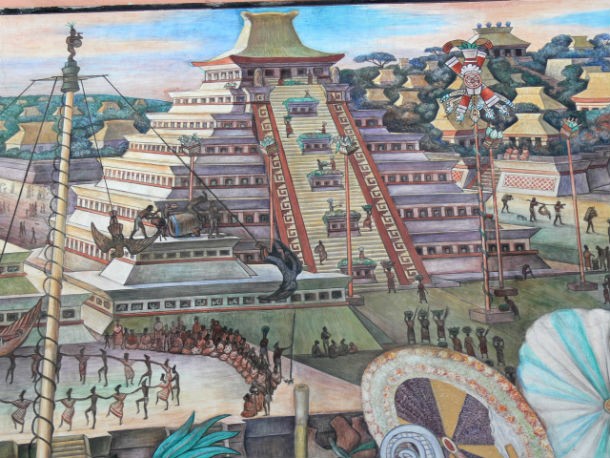 Source: Wikipedia, Image: commons.wikimedia.org
Source: Wikipedia, Image: commons.wikimedia.org Tenochtitlán was an Aztec city that flourished between 1325 and 1521. Built on an island on Lake Texcoco, it had a system of canals and causeways that supplied water and food to the hundreds of thousands of people who lived there. It was largely destroyed by Spanish conquistador Hernán Cortés in 1521. Modern-day Mexico City now lies on top of much of its glorious remains.
Olympia
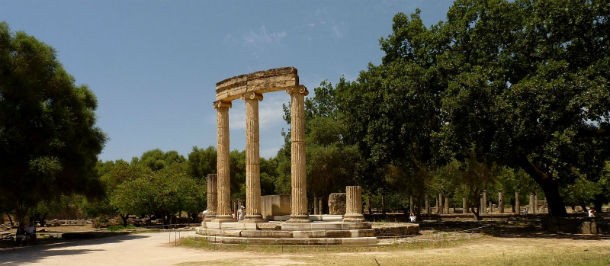 Source: Wikipedia, Image: commons.wikimedia.org
Source: Wikipedia, Image: commons.wikimedia.org In the western Peloponnese, in the “Valley of Gods,” is the most celebrated sanctuary of ancient Greece, and the birthplace of the most important athletic event of all time: the Olympic Games. Olympia is one of the most popular tourist destinations in Greece, and one of the most powerful brand names worldwide, with billions of people focusing on the city during the ceremony of the lighting of the Olympic flame before each Olympics. With a population of about 13,500 Olympia is without doubt one of the most influential small places in the world.
Moscow
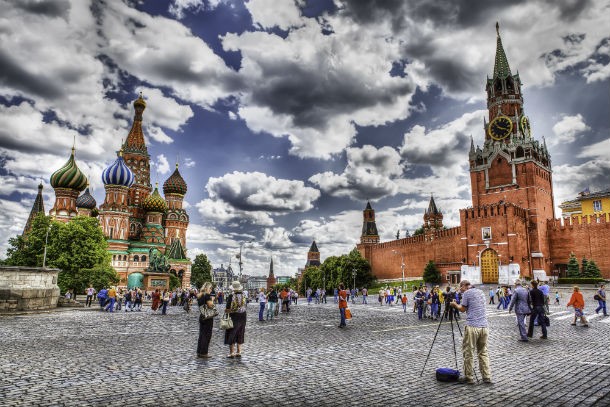 Source: Wikipedia, Image: commons.wikimedia.org
Source: Wikipedia, Image: commons.wikimedia.org Moscow gradually grew around the Kremlin, beginning in the fourteenth century. It was the capital of Great Russia from 1340 to 1547 and then the Tsardom of Russia until 1712, when the capital was moved to Saint Petersburg. It also became the capital of the Russian Soviet Federative Socialist Republic from 1917, which then became the Soviet Union (1922–1991), and since 1991 has served as the capital of the Russian Federation.
London
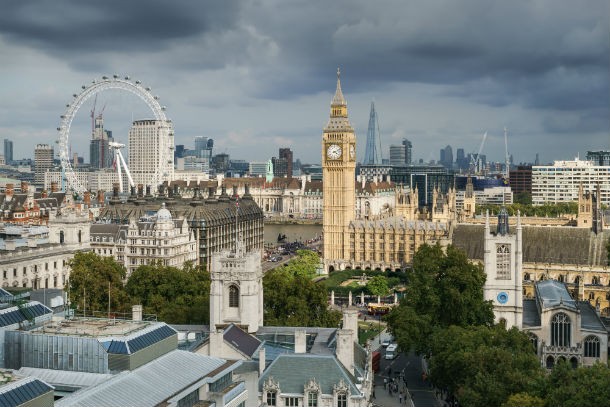 Source: Wikipedia, Image: Wikipedia
Source: Wikipedia, Image: Wikipedia London was the capital of the vast British Empire that lasted for over three hundred years, bringing more disparate parts of the world under European power than any other city. Home of the Royal Society and modern science, London has been one of the most influential cities in the world for the past half millennium.
Florence
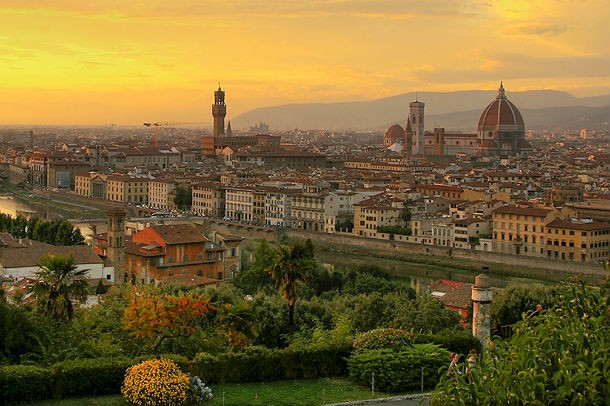 Source: Wikipedia, Image: commons.wikimedia.org
Source: Wikipedia, Image: commons.wikimedia.org Florence, capital of Italy’s Tuscany region and birthplace of the Renaissance, is home to masterpieces of modern art and architecture. One of its most iconic sites is the Florence Cathedral, which is considered one of the most gorgeous man-made constructions in the world.
Dubai
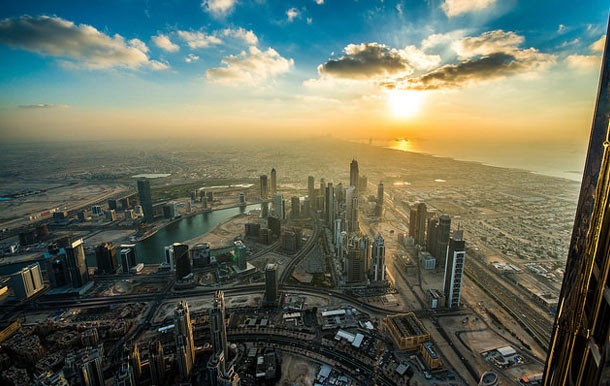 Source: Wikipedia, Image: Flickr.com, Photo by Simon Bierwald cc2.0
Source: Wikipedia, Image: Flickr.com, Photo by Simon Bierwald cc2.0 The earliest recorded mention of Dubai is in 1095 in the Book of Geography by the Andalusian-Arab geographer Abu Abdullah al-Bakri. It is believed that the city was covered with sand for over five thousand years. During the twentieth century, however, the city became one of the most powerful economically speaking, and has also become known for its skyscrapers and high-rises, in particular the world’s tallest building, the Burj Khalifa.
Delhi
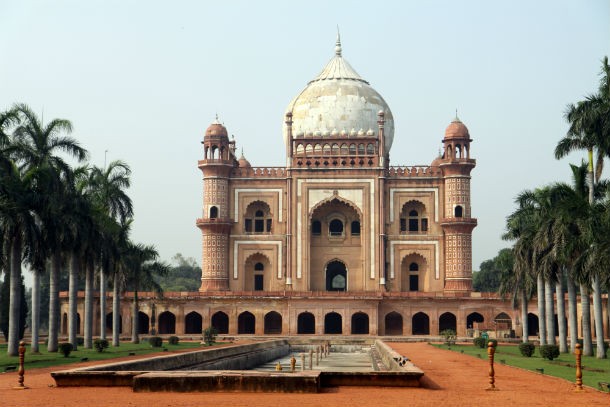 Source: Wikipedia, Image: Wikipedia
Source: Wikipedia, Image: Wikipedia Delhi has seen the rise and fall of many empires that have left behind a plethora of monuments to the grandeur and glory of bygone ages. It hasn’t always been India’s capital, but it has played a pivotal part in Indian history. It has always been a gateway city, built on the plains initially near a fording point on the Yamuna River and on the route between western and central Asia and Southeast Asia. It’s also believed to be the site of the fabled city of Indraprastha, which featured in the Mahabharata over three thousand years ago.
Damascus
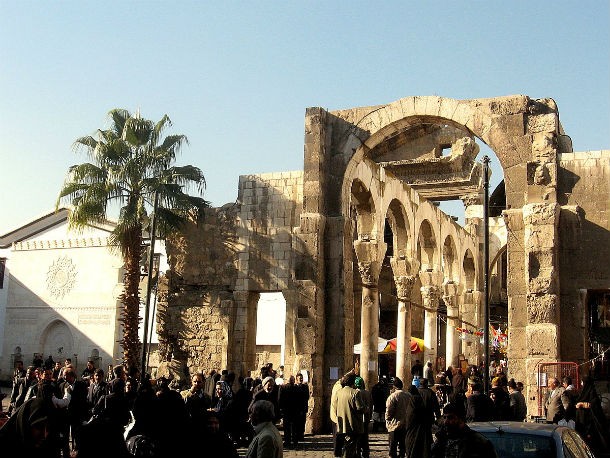 Source: Wikipedia, Image: Wikipedia
Source: Wikipedia, Image: Wikipedia Legend has it that on a journey from Mecca, the Prophet Mohammed cast his gaze on Damascus but refused to enter the city because he wanted to enter paradise only once—when he died. In this city of legends, which vies for the title of the world’s oldest continually inhabited city, this is but one of thousands of stories.
Cairo
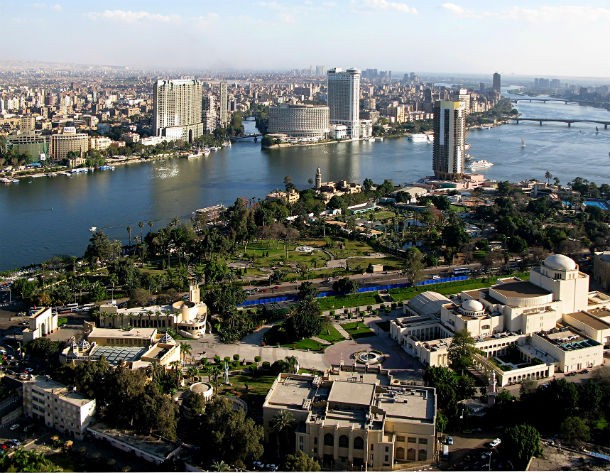 Source: Wikipedia, Image: Wikipedia
Source: Wikipedia, Image: Wikipedia The origins of present-day Cairo can be traced back to the Egyptian capital of Memphis, which is believed to have been founded in the early fourth millennium BC near the head of the Nile delta, south of the present city. The city spread to the north along the east bank of the Nile, and its location has commanded political power ever since.
Berlin
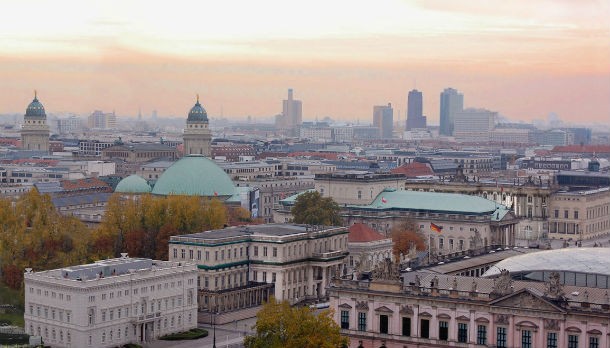 Source: Wikipedia, Image: Wikipedia
Source: Wikipedia, Image: Wikipedia Berlin, Germany’s capital and cultural center, dates to the thirteenth century and reached its peak during World War II when Hitler used it as the base of the Nazi regime. It remains one of the most economically powerful cities in the world but is better known for its art scene, nightlife, and modern architecture than anything else.
Baghdad
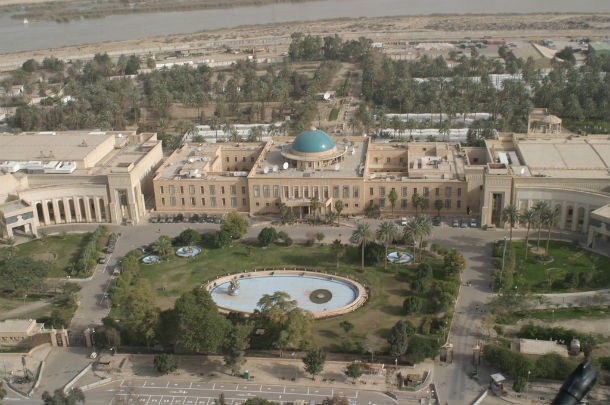 Source: Wikipedia, Image: commons.wikimedia.org
Source: Wikipedia, Image: commons.wikimedia.org Baghdad is Iraq’s largest city and one of the most populous urban areas in the Middle East. The city was founded in 762 CE as the capital of the ʿAbbāsid dynasty, and for the next five hundred years it was the most significant cultural center of Arab and Islamic civilization and one of the greatest cities in the world.
New York
 Source: Wikipedia, Image: Wikipedia
Source: Wikipedia, Image: Wikipedia New York has led America’s surge to the forefront of the world stage over the past century and continues to be the capital of the world’s economy and trade. It might not compare in terms of historical significance with many other cities on this list, but its rapid rise to the top is one of the most impressive in history nonetheless.
Alexandria
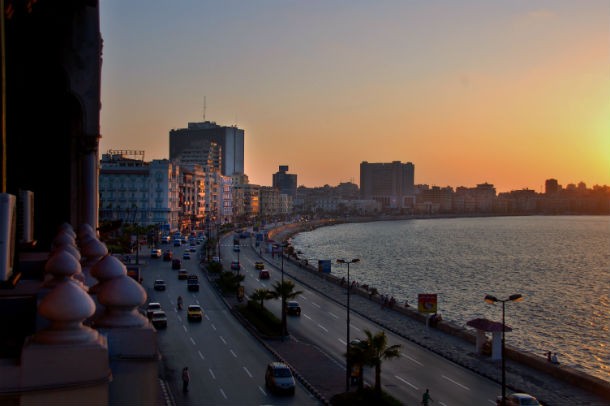 Source: Wikipedia, Image: Wikipedia
Source: Wikipedia, Image: Wikipedia Named after the most famous king of antiquity, Alexander the Great, Alexandria was the symbol of the union of two of the greatest civilizations: Greek and Egyptian. During the Hellenic period the city became home to the famous Lighthouse of Alexandria, one of the Seven Wonders of the Ancient World, and the Great Library, the largest library in antiquity.
Eridu
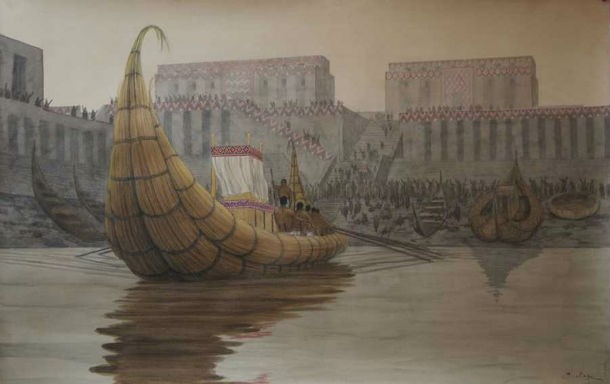 Source: Wikipedia, Image: commons.wikimedia.org
Source: Wikipedia, Image: commons.wikimedia.org Eridu is an ancient Sumerian city in what is now Iraq. It was long considered the earliest city in southern Mesopotamia and is still believed to be the oldest city in the world. It was established by fishermen, peasants, and nomads, birthing the first major settlement in human history.
Paris
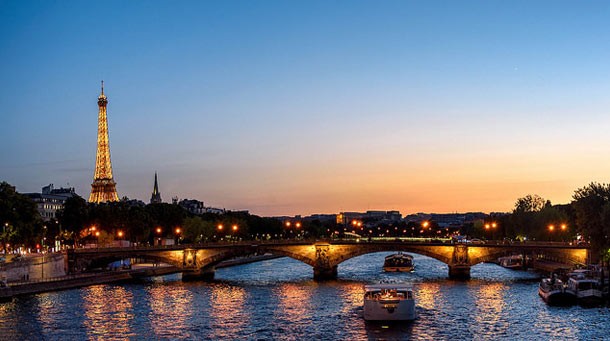 Source: Wikipedia, Image: Flickr.com by Joe deSousa Public Domain
Source: Wikipedia, Image: Flickr.com by Joe deSousa Public Domain Paris has been the center of European culture and fashion since the Middle Ages. The city influenced modern Europe like no other,and remains to this day the most visited city in the world. Finally, during the Enlightenment and the French Revolution Paris became one of the global centers of social and political ideas that changed the world and keep influencing it to this day.
Ur
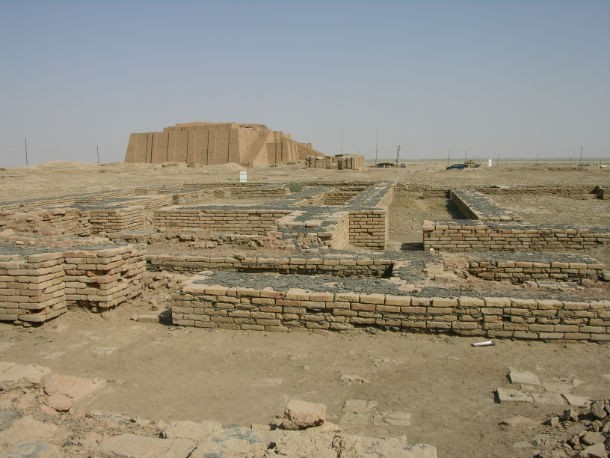 Source: Wikipedia, Image: Wikipedia
Source: Wikipedia, Image: Wikipedia Ur was a city in Sumer, in southern Mesopotamia, in what is now Iraq. According to biblical tradition, Ur was named after the man who founded the first settlement there, though this has been disputed. The city’s other biblical link is to the patriarch Abraham, who left Ur to settle in Canaan. Whatever its biblical connections may have been, Ur was a significant port city on the Persian Gulf which began, most likely, as a small village in the Ubaid Period of Mesopotamian history (5000–4100 BCE), was an established city by 3800, and continually inhabited until 450 BCE.
Constantinople
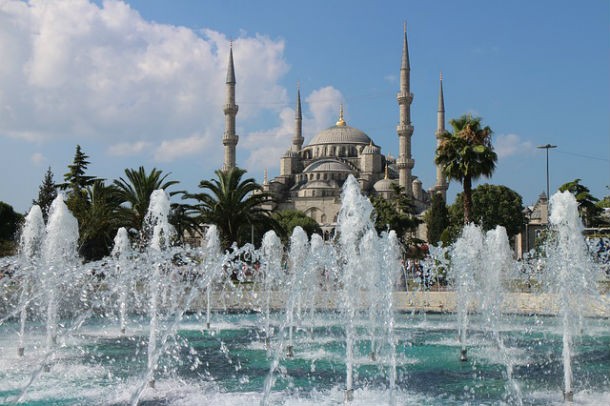 Source: Wikipedia, Image: pixabay.com
Source: Wikipedia, Image: pixabay.com With a history of thousands of years Constantinople, founded by the ancient Greeks as Byzantion and which is today known as Istanbul, experienced its most glorious days as the capital of the vast Byzantine Empire. The city was known for its architectural masterpieces such as the Greek Orthodox cathedral Hagia Sophia, which served as the seat of the Ecumenical Patriarchate, and the sacred Imperial Palace where the Byzantine emperors resided.
Beijing
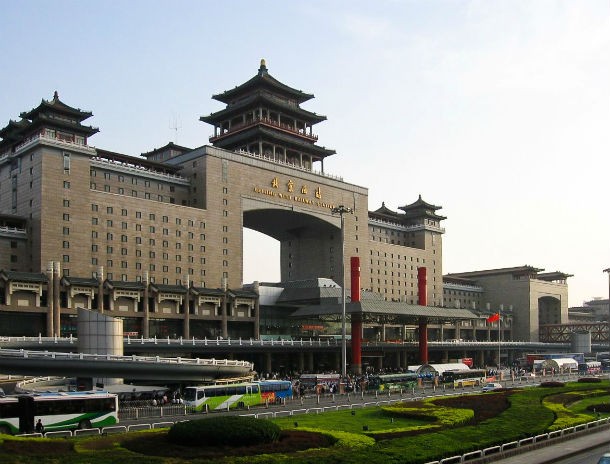 Source: Wikipedia, Image: commons.wikimedia.org
Source: Wikipedia, Image: commons.wikimedia.org Beijing, China’s massive capital, has an immense history stretching back three millennia. It’s widely known for its modern architecture as well as for its ancient sites including the grand Forbidden City complex, the imperial palace during the Ming and Qing dynasties.
Babylon
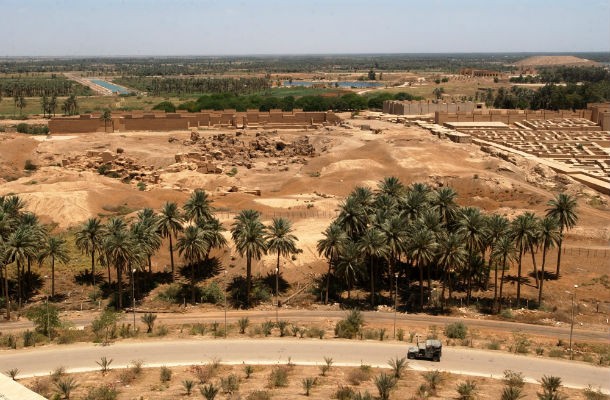 Source: Wikipedia, Image: Wikipedia
Source: Wikipedia, Image: Wikipedia Located about sixty miles south of Baghdad in modern-day Iraq, the ancient city of Babylon served for nearly two millennia as a center of Mesopotamian civilization. Hammurabi, one of its early rulers, created the first recorded system of laws, while in later times the Babylonian language would be used across the Middle East as a way of communicating across borders. Another of the city’s great accomplishments, according to legend, was the construction of the Hanging Gardens, a wonder of the ancient world, which some believe was built by the biblical king Nebuchadnezzar II.
Rome
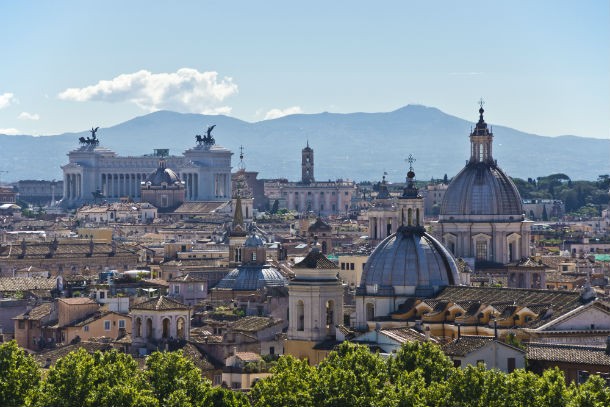 Source: Wikipedia, Image: commons.wikimedia.org
Source: Wikipedia, Image: commons.wikimedia.org Rome is synonymous with the most famous empire in human history, lasting for hundreds of years and dominating most of the known world of antiquity. It is also the home of Catholicism and the pope’s base, with millions of religious tourists visiting every year.
Mecca
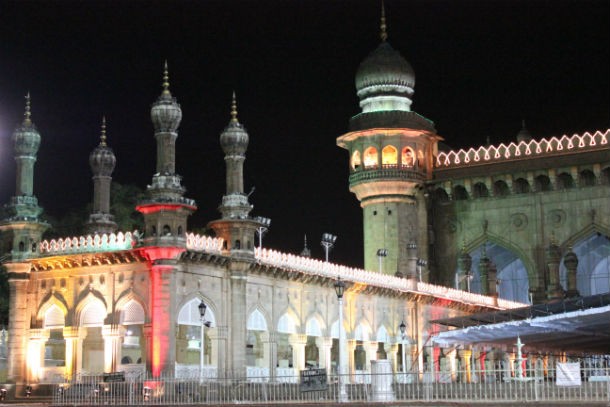 Source: Wikipedia, Image: commons.wikimedia.org
Source: Wikipedia, Image: commons.wikimedia.org In the year 570 CE, in the city of Mecca, in what is today Saudi Arabia, Mohammed was born. He would become the founder of Islam, a mighty monotheistic religion that has over a billion adherents. It is a religion that would come to exert a great influence on civilization and human history in general. Today, more than fifteen million Muslims visit Mecca each year, including several million during the annual Hajj, the pilgrimage all Muslims are required to take at least once in their lifetime.
Jerusalem
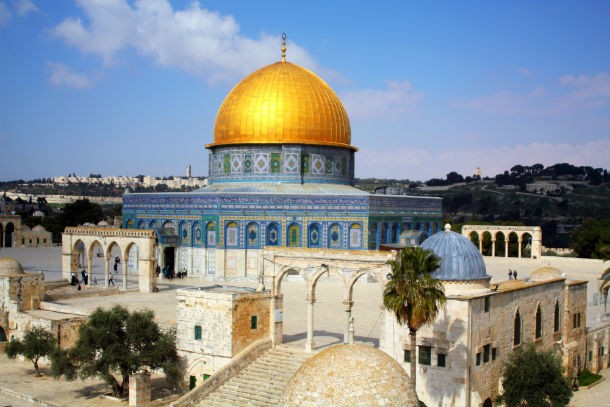 Source: Wikipedia, Image: Wikipedia
Source: Wikipedia, Image: Wikipedia Jerusalem, a city in central Israel west of the Dead Sea, has been a place of pilgrimage and worship for Christians, Jews, and Muslims since the biblical era. The Old City retains significant religious sites including the Temple Mount compound and the Western Wall, sacred to Judaism, and the Dome of the Rock, a seventh-century Islamic shrine with a gold rotunda.
Athens
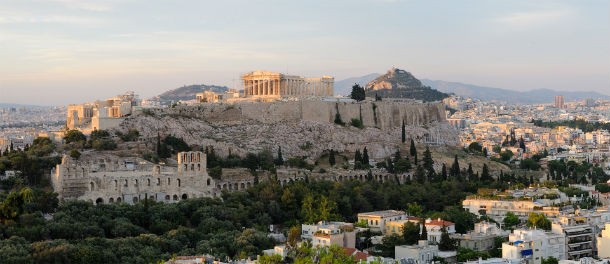 Source: Wikipedia, Image: Wikipedia
Source: Wikipedia, Image: Wikipedia Birthplace of Western civilization, Athens is the most influential city ever in the fields of philosophy, architecture, politics, science, and free thinking, as well as the original home of what is considered the most ideal system of government: democracy. Athens also became the first city to organize the first modern Olympics back in 1896. Some of its most famous citizens include giants such as Socrates, Plato, Solon, and Pericles.



























